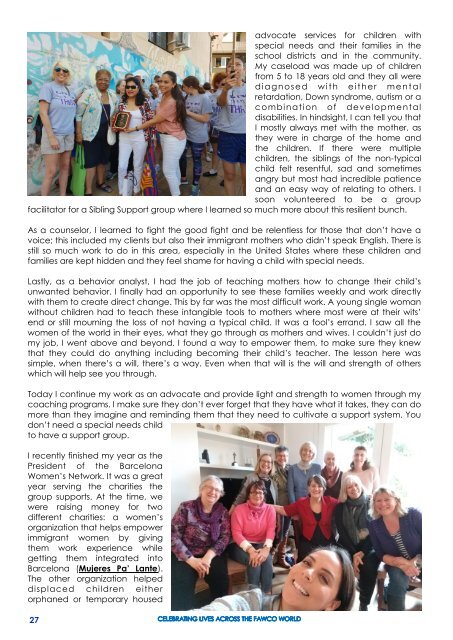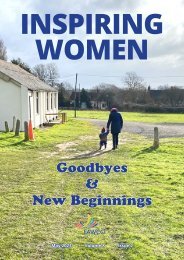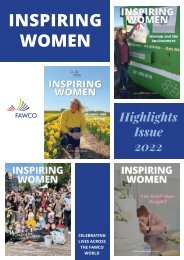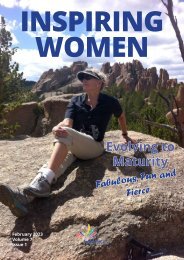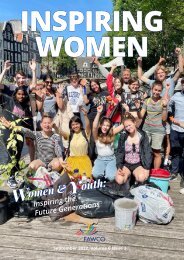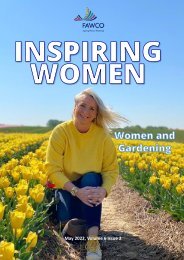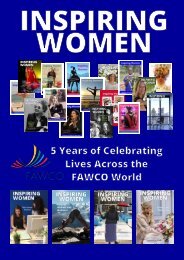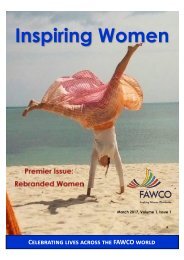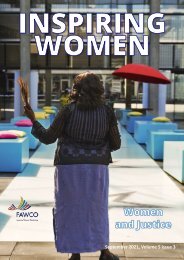Inspiring Women Fall 2018
Create successful ePaper yourself
Turn your PDF publications into a flip-book with our unique Google optimized e-Paper software.
advocate services for children with<br />
special needs and their families in the<br />
school districts and in the community.<br />
My caseload was made up of children<br />
from 5 to 18 years old and they all were<br />
d iagnos ed with e i t her m e n t al<br />
retardation, Down syndrome, autism or a<br />
combination of developmental<br />
disabilities. In hindsight, I can tell you that<br />
I mostly always met with the mother, as<br />
they were in charge of the home and<br />
the children. If there were multiple<br />
children, the siblings of the non-typical<br />
child felt resentful, sad and sometimes<br />
angry but most had incredible patience<br />
and an easy way of relating to others. I<br />
soon volunteered to be a group<br />
facilitator for a Sibling Support group where I learned so much more about this resilient bunch.<br />
As a counselor, I learned to fight the good fight and be relentless for those that don’t have a<br />
voice; this included my clients but also their immigrant mothers who didn’t speak English. There is<br />
still so much work to do in this area, especially in the United States where these children and<br />
families are kept hidden and they feel shame for having a child with special needs.<br />
Lastly, as a behavior analyst, I had the job of teaching mothers how to change their child’s<br />
unwanted behavior. I finally had an opportunity to see these families weekly and work directly<br />
with them to create direct change. This by far was the most difficult work. A young single woman<br />
without children had to teach these intangible tools to mothers where most were at their wits’<br />
end or still mourning the loss of not having a typical child. It was a fool’s errand. I saw all the<br />
women of the world in their eyes, what they go through as mothers and wives. I couldn’t just do<br />
my job, I went above and beyond. I found a way to empower them, to make sure they knew<br />
that they could do anything including becoming their child’s teacher. The lesson here was<br />
simple, when there’s a will, there’s a way. Even when that will is the will and strength of others<br />
which will help see you through.<br />
Today I continue my work as an advocate and provide light and strength to women through my<br />
coaching programs. I make sure they don’t ever forget that they have what it takes, they can do<br />
more than they imagine and reminding them that they need to cultivate a support system. You<br />
don’t need a special needs child<br />
to have a support group.<br />
I recently finished my year as the<br />
President of the Barcelona<br />
<strong>Women</strong>’s Network. It was a great<br />
year serving the charities the<br />
group supports. At the time, we<br />
were raising money for two<br />
different charities: a women’s<br />
organization that helps empower<br />
immigrant women by giving<br />
them work experience while<br />
getting them integrated into<br />
Barcelona (Mujeres Pa’ Lante).<br />
The other organization helped<br />
displaced children either<br />
orphaned or temporary housed<br />
27


